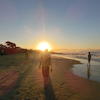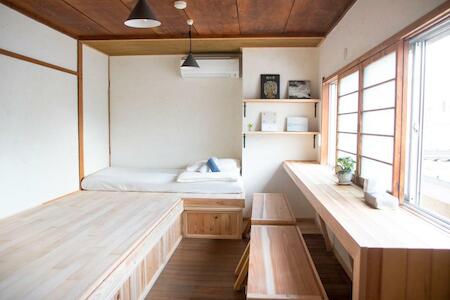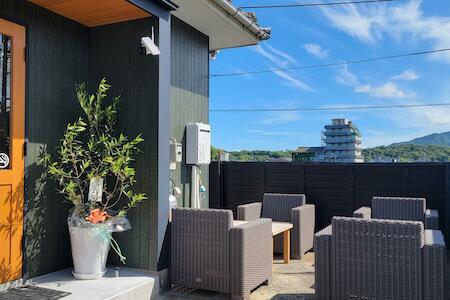Looking for budget stays in Hagi? This section is designed to save you time, money, and unnecessary stress. We've got insider tips to help you find affordable hostels and the cheapest places to stay in Hagi.

Hagi (Hagi-shi), Japan, is a town in the southwestern corner of Honshu, the most populous Japanese island. Around fifty thousand people live in this coastal town, which is renowned for Japanese pottery, the so-called Hagi ware. The origin of this lovely handicraft dates back to the sixteenth century, when potters from Korea arrived. Thanks to the rich history and the attractive sights in the small centre, tourism is a key factor for the local economy.
Mori Terumoto built Hagi Castle in the early seventeenth century; nowadays, it is an UNESCO World Heritage Site. The Mori Clan ruled in the area for more than two hundred years and moved the capital from Hiroshima to present-day Hagi. Meanwhile, Hagi had become a flourishing castle town. Besides the ruins of Hagi Castle, the well-preserved sightseeing district is really interesting for tourists. There you can find samurai and merchant houses as well as the Hagi Museum.
There are numerous hotels and guesthouses, and hostels in Hagi; however, the offering of hostels in Hagi (Hagi-shi), Japan is limited. If you want to make sure you get a bed in a Hagi (Hagi-shi), Japan hostel, you should book in advance and keep an eye on national holidays as there will be an increasing number of Japanese tourists then. Most accommodations and hostels in Hagi (Hagi-shi), Japan offer free Wi-Fi and free parking. Generally, the quality level of the Hagi (Hagi-shi), Japan hostel and hotel facilities is good. Communication problems can occur, as many locals do not speak any English.
If you take a stroll in the centre, you can find many interesting and iconic streets in the centre. Check out the preserved merchant and samurai quarters of Horiuchi and Jokamachi. In Jokamachi, Kikuya Residence is worthwhile to visit. This spacious home of a rich merchant family offers a beautiful garden and more than five hundred period pieces on display. The Enseiji Temple was built in the thirteenth century; Japan's first prime minister, Hirobumi Ito, studied there during his childhood. Tokoji Temple was founded in the seventeenth century and belongs to the Japanese Zen Buddhists. The architectural style has a significant Chinese influence. The beautiful wooden building can be found east of the centre.
Written by Travel Expert Hagi
 Flo
Flo
